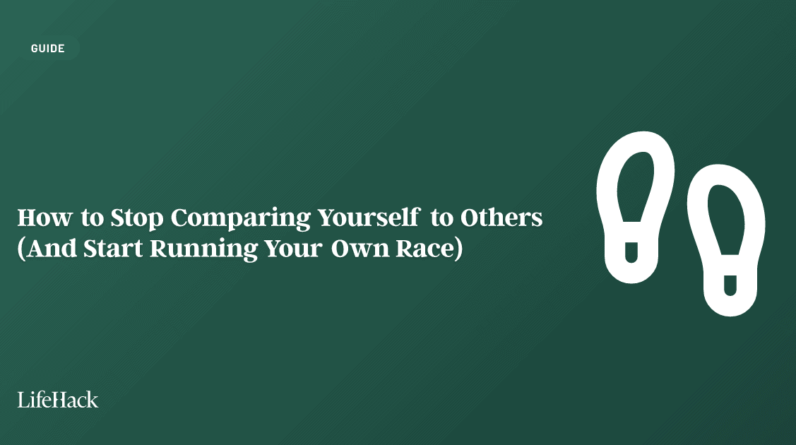
Before writing this article I decided to comb through the internet in search of what people felt guilty about enjoying – i.e. what was other people’s “guilty pleasure”?
What I discovered really surprised me: To my astonishment, a lot of the things other people considered embarrassing or a guilty pleasure were things I indulged in without flinching or feeling any remorse.
Conversely, some of the things I felt deeply guilty about were things other people indulged in without any qualms.
And it struck me: feeling guilty about something you find pleasurable is totally subjective. Of course it is. The negative feelings you’ve attached to the things that bring you pleasure are all in your head.
What Are the Categories of Guilt?
Generally, there are three types of guilt:
Reactive guilt: This arises when you’ve done something that you feel is against your values, or that is against societal expectations and norms. For instance, cheating on a test, stealing or lying to someone you care about.
Anticipatory guilt: This kind of guilt comes when you’re thinking about breaking your moral or society’s code. This type of guilt can keep you from doing something you think is wrong, or looked down upon by society.
An example of anticipatory guilt could be thinking about calling in sick to work when you’re not actually sick, feeling guilty because your co-workers will have to do extra work to cover for you.
Existential guilt: This is a guilt that springs from feeling your “privileges” are unfair, from seeing injustice or causing harm to others.
For instance, some people feel a deep sense of guilt after surviving a ghastly accident that claimed the lives of another. (This is also known as Survivor’s Guilt.)
But why do these guilty feelings torment us? Because they’ve been ingrained into us by several sources.
What Are the Sources of Guilt?
Some of the more common sources of guilt could be from:
Family: Your family’s definition(s) of acceptable and unacceptable may go a long way to shape your values, even though the things that are acceptable and unacceptable aren’t explicitly right and wrong, or even clearly defined.
Culture: The way(s) of doing things – the dos and don’ts, the traditions and taboos – all go a long way to shape how we feel about certain things/situations.
Religion: This takes it a step further by convincing individuals that a divine – most times omnipresent – being is always watching them, checking to see if they are doing what he/she/it demands – things that may even be against the person’s natural inclination.
Society: Due to the sheer complexity of life, we find ourselves in several “game” settings. And, these “game constructs” force us to act in certain ways in order to “win” or be accepted. This then goes on to affect our choices of dressing, feeding, or acting – even if you do not particularly desire what society demands.
Although guilt has its uses, it is oftentimes unrealistic, and can even become unhealthy when it gets mixed with our pleasures – as it reduces the enjoyment of life in general.
Guilty pleasures then, essentially make us feel embarrassed about things that just make us happy.
Should You Feel Bad About Your Guilty Pleasures?
Some activities that are considered guilty pleasures are not actual useful, and can become harmful when overindulged.
For example, devouring Big Macs, glugging beer, sprawling on the bed for hours sleeping, binge-watching Netflix, etc. are some examples of guilty pleasures, and don’t have a lot of significant benefits, but can have serious downsides if done in excess.
But that’s the point. These guilty pleasures are only there to serve as a nice treat – a sort of reward and escape from the daily pandemonium of life (work, family, and all other stressors).
However, due to the potential repercussions that arise from excesses, a lot of people (and maybe even you) have associated those activities with negativity and shame which brings a sense of unworthiness, or inadequacy whenever you indulge.
And all of this can lead to a situation where you start hiding or refuse to admit that you particularly enjoy doing them every once in a while.
The fact is, if someone is indulging in any activity to the point of harming themselves or others, they might have other serious unresolved issues – other factors are to blame, and not the activity in particular.
How to Stop Feeling Guilty About Your Guilty Pleasures
Pleasure is important. There is no point in working hard, meditating, or working out if you are not going to enjoy any of the benefits they bring.
To remove the feeling of guilt from pleasure, we must ensure, then affirm to ourselves that what we are doing is not harming anyone – including ourselves – and that our actions are done solely as a reward for what we have accomplished – and not as a distraction.
That said, it becomes crucial to remember that:
1. Guilt Isn’t Same As Wrong.
Guilt is only a feeling that can be influenced by religion, family, society, and culture, as we’ve explored.
So, you shouldn’t let that hold you back, especially when you know for a fact that what you are doing isn’t wrong, and that it brings you genuine happiness.
2. Your Pleasure Doesn’t Harm Others.
Deriving pleasure from making sick jokes about sensitive topics like abuse, racism, or other peoples’ religion, is not just disrespectful, but harmful to them.
This is the same with fighting, stealing, deceiving, or whatever perverse desires lay lurking in the shadows. If your guilty pleasure causes distress to others, it is no longer a guilty pleasure but an offense.
By contrast, if what you are doing is not in any way hurting someone else, why punish yourself by resisting?
3. Pleasure and Productivity Can Complement Each Other.
A lot of people justify denying themselves good things by claiming they have work, but the reality is that you can’t work all round the clock.
Sure, you should do the important things first, before indulging in your pleasures, but remember you deserve your treat.
A good example is the use of social media; When scrolling through endless Instagram posts starts interfering with your daily tasks, then you know this is more than a guilty pleasure. Of course, you should first face what you need to do.
Instagram on its own is probably not the great evil that should be deleted from your phone right away.
4. Your Well-being is Not Affected.
No matter how pleasurable it is, if it’s detrimental to your health, then there is no way you would ever stop feeling genuinely guilty about it – because it is actively harming you.
For example, if you feel terrible about smoking cigarettes, it isn’t just because society frowns at it, but because you know deep down it is killing you and affecting your health.
Hence, to overcome the guilt in your pleasure, you need to ensure that the activity is genuinely blameless. If stressed or tensed, it can be a good idea to play some video games, sleep, or have a snack…those may feel pleasurable, but you don’t have to feel guilty about them.
Letting Go of Your Guilt
In conclusion, stop hiding what you are doing.
Feel free to show people your authentic self, and when they ask, make sure to remind them that it is all in moderation.
Remember, watching Netflix is fun, social media can be very entertaining, and a good nap is absolutely refreshing.
Trying to let go of a guilty pleasure that is beneficial for your sanity can be very difficult and unnecessary because you are inevitably just trying to deny yourself the natural relaxation, happiness, and comfort that comes with those.
So, own it: Enjoy your guilty pleasures without guilt. Take the guilt out of pleasure! 😉
Updated from Jul 29, 2021







